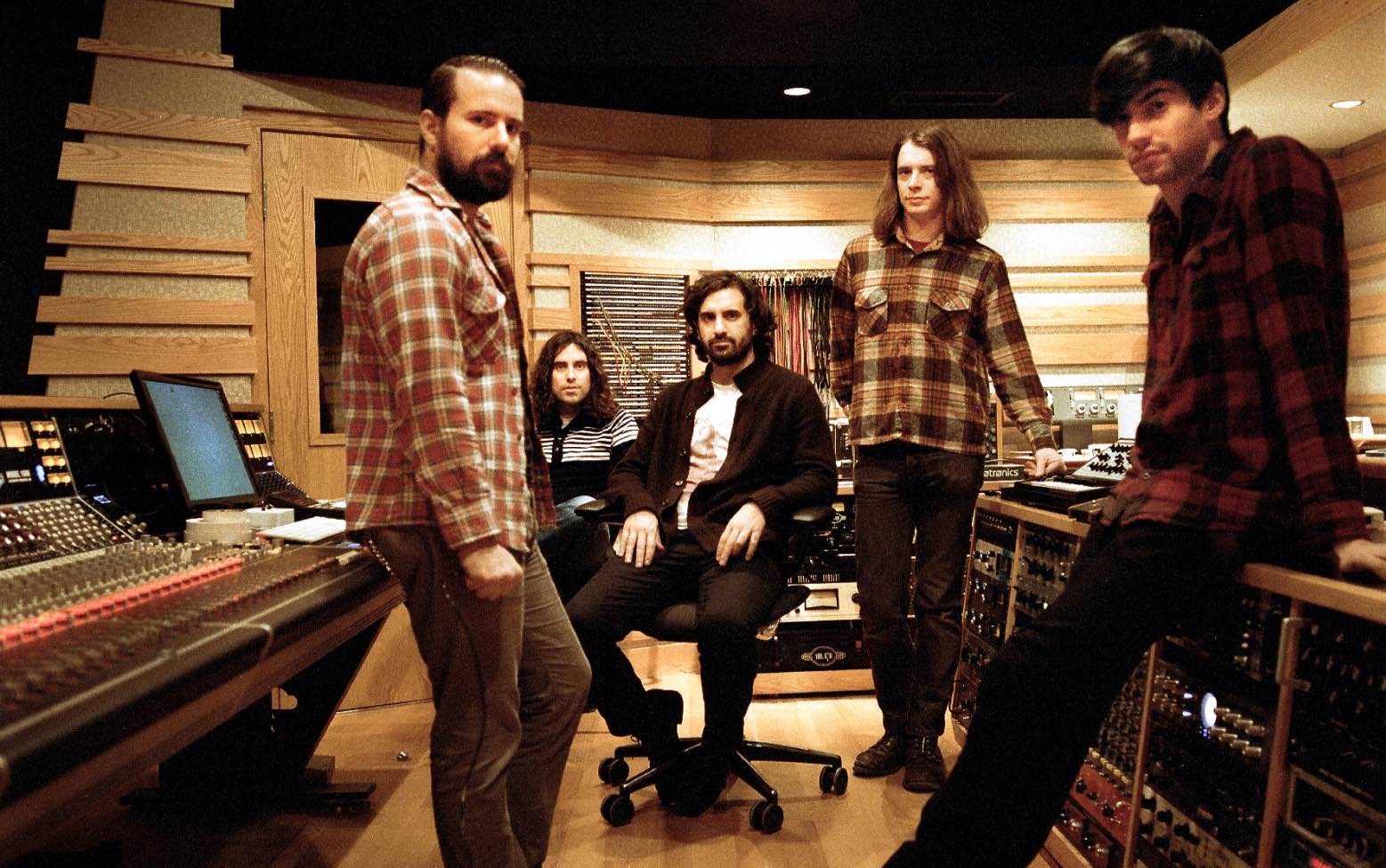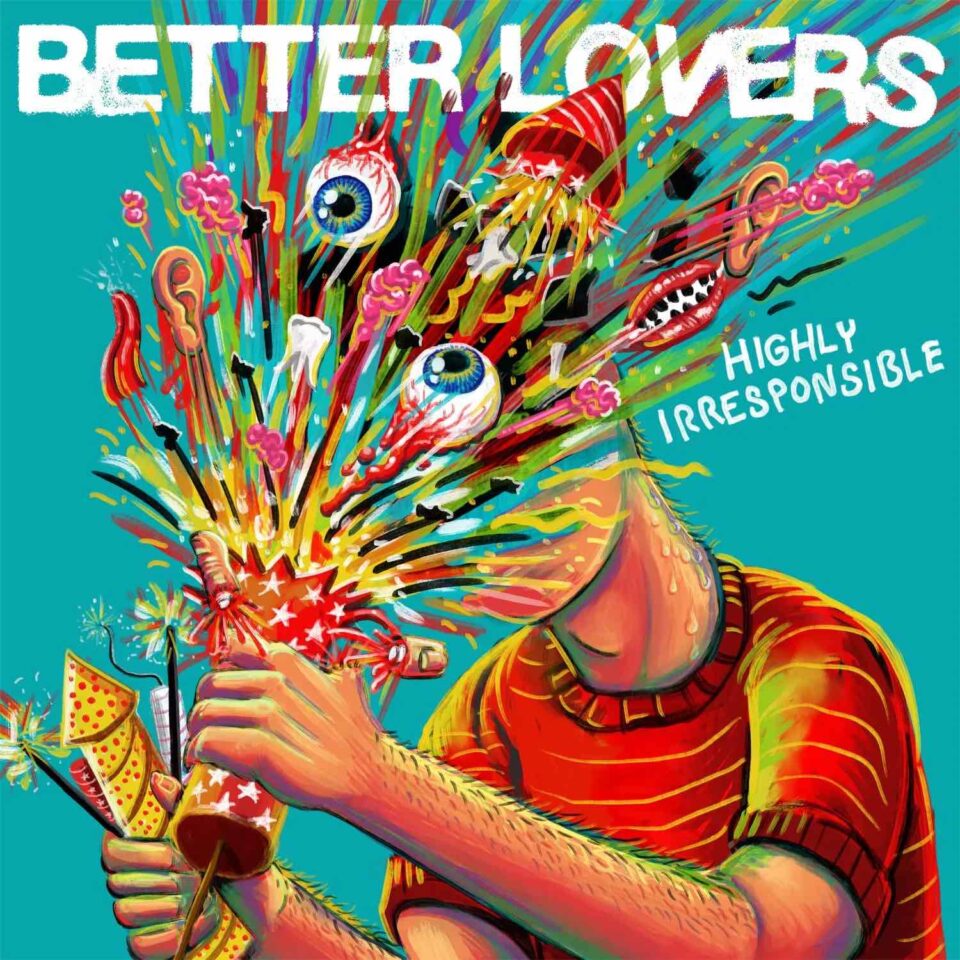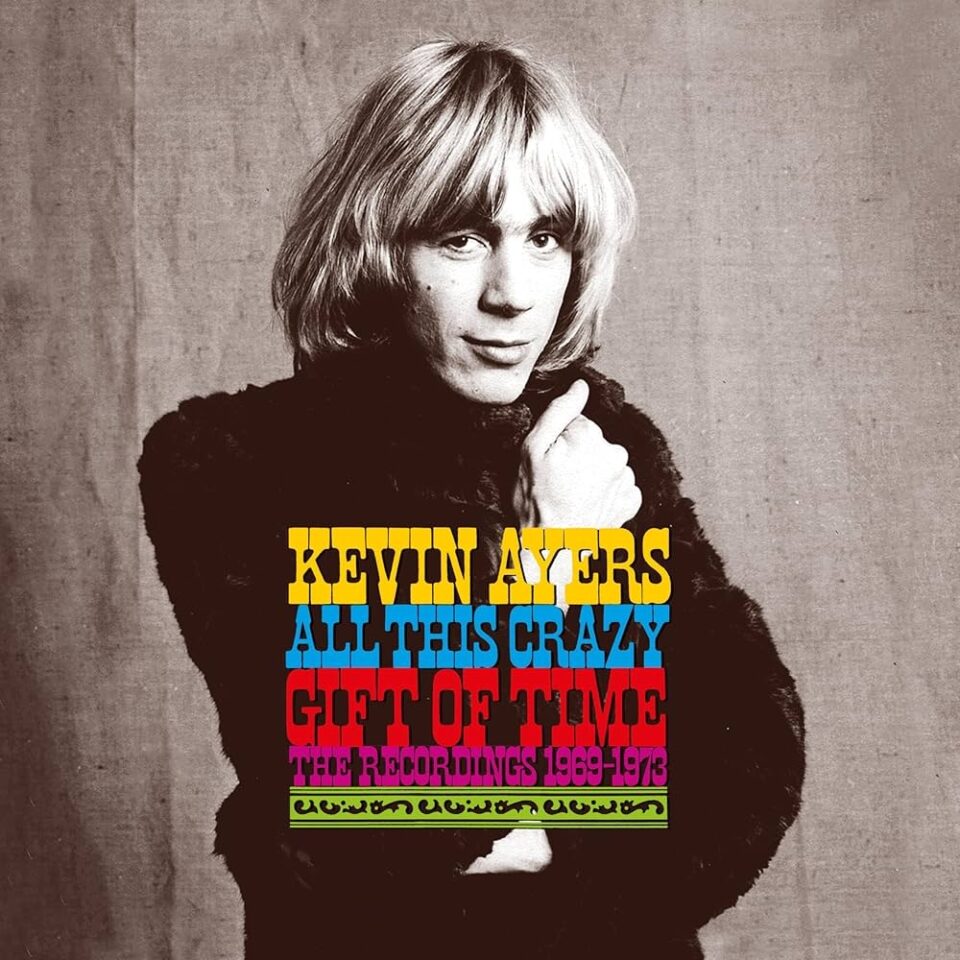The album cover for The Men’s fourth album New Moon was an accident. Drummer Rich Samis, an experienced screenprinter responsible for all of the band’s artwork since joining the band in 2011, didn’t intend for the floral design on the 2013 LP to take the overwhelmingly vibrant form it ultimately did, pairing a fascinatingly psychedelic two-color palette with its apt C&W font. In a way it reflects the record’s contents: music by a band who at the time were exclusively known as noise-punks clumsily stifling that history through an earnest attempt at country rock with the results unintentionally presenting a wholly unique and surprisingly beautiful contribution to the cowpunk canon.
Yet founding member Mark Perro will be the first to tell you that the record itself was no accident, nor was the influence of folk and country ever intentionally excluded from the band’s DNA. Ever wary of leaning too hard into influences, New Moon was more so a product of its environment (it was recorded in Upstate New York, far from the city their hectic prior material embodies) and the unconscious processing of the Tom Petty and Bob Dylan records constantly spinning on the recording space’s turntable. What came out was a wholly original sound that may have had a bigger impact if the group hadn’t inadvertently tapped into the mainstream with the album they’d released almost exactly one year prior, Open Your Heart.
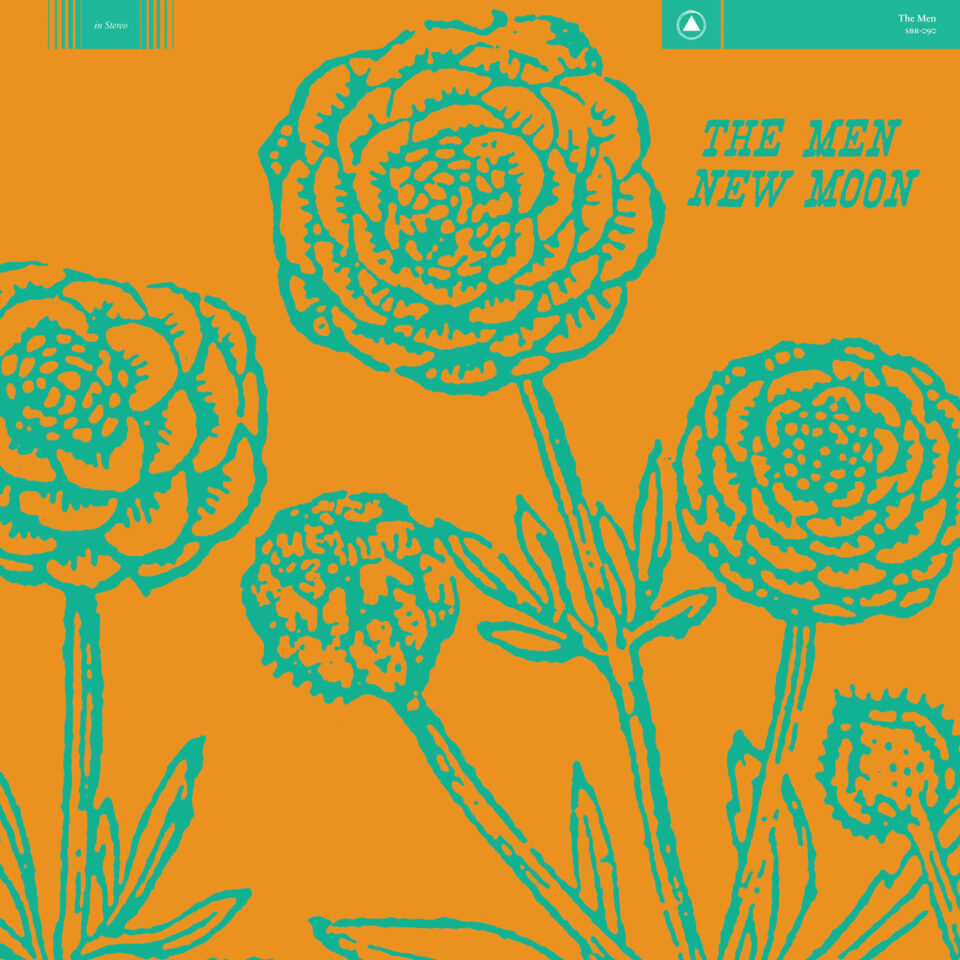
After making a name for themselves in NYC’s punk scene, New Moon received the same reception any country act might see opening an all-punk bill, with album opener “Open the Door” introducing piano, organ, and acoustic guitar into the mix. While fairly respected critically, the album felt like a final severing of ties with a scene that had limited the growth of a set of artists whose tastes were quickly growing beyond the kinds of music they played. When I call up Perro to discuss the album 10 years after its release, he tells me he and Nick Chiericozzi—who formed the group with Perro and former bassist Chris Hansell in 2008—were sharing Sinatra albums with each other earlier that day. “Maybe we’ve just run out of other things to listen to at this point,” he tells me.
“I love music as a whole,” he continues, a fact made evident across the four albums The Men released after New Moon, which weaved through heartland rock, new wave, and psych-folk before winding up back deep in the heart of urban garage-punk on their newly released ninth album New York City. “I try to take a broad, wide view of that and try to be broad and wide when I’m playing and hopefully let myself be the constant in all the influences that make us who we are.”
With the record’s anniversary landing over the weekend, read more of our conversation below.
What do you recall from the initial reception of New Moon?
I felt like we were definitely getting some sort of negative backlash. It’s funny, because if you look back at certain reviews they’re actually pretty positive. But it was such a transitional period for us—Open Your Heart sort of exploded out of nowhere and put us in this different world with a lot of different people. There was a definite backlash—and I don’t mean this in an accusatory way—from the punk community that we felt we were a part of. And to that extent I don’t think we’ve ever been accepted back by that community. I still love that music and a lot of those bands, but when New Moon came out, that was the pinnacle of all that influx.
It was a weird time, and I think it’s funny looking back now—especially reading reviews of the new album, and even doing this interview with you—it seems that people tend to talk about New Moon in only a positive light. It didn’t feel that way at the time.
“In my mind rock and roll embodies country, it embodies grunge, it embodies electric guitar music. That’s really what we are, we’re a guitar band.”
To prep for this interview I listened to New Moon and thought, “Wow, they really did change.” But then I went back and listened to Open Your Heart again and these two records aren’t that different.
We didn’t think so either. We thought it was a natural progression. We thought we had elements of all that stuff going throughout even from the very early days. Nick and I would always play acoustic guitars together, we always had these little instrumental or acoustic songs that didn’t always find a release. And maybe that’s part of the problem: that we kept that a little closer to our chests. And once things got moving a little more we felt more confident to let that come out.
One of the things that gets to me is how people talk about how, “Oh, they’re changing every album, they don’t have a consistent sound.” I never felt that way. As a foundation, we’ve always been about rock and roll music. In my mind rock and roll embodies country, it embodies grunge, it embodies electric guitar music. That’s really what we are, we’re a guitar band. It all kind of falls under the same umbrella, in my opinion.
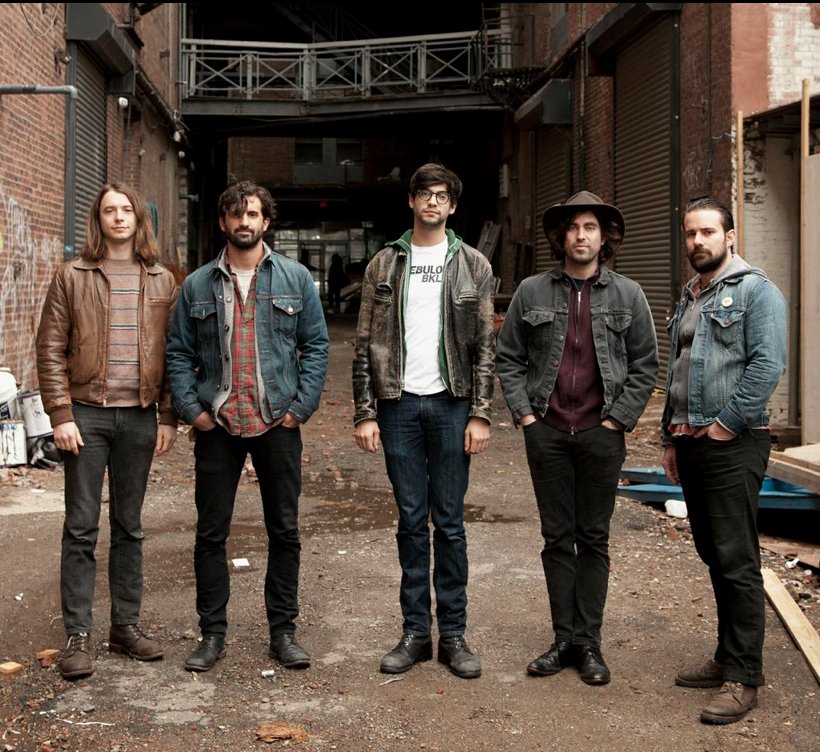
There’s a song on Open Your Heart called “Country Song” that leans into country rock, and I think my original impression of it was that it was ironic, just because I’d never picked up on that influence in your music before New Moon.
It definitely wasn’t meant ironically. The core of that song is a very simple acoustic guitar lick. The way we did it ended up being electric, and there’s some effects and psychedelics going on, but the core of it, you could argue, is ripped off of John Fahey or something like that. It was something that felt appropriate, maybe to be evocative of something that wasn’t as literal when you heard it, but maybe evoked some kind of imagery behind that.
Did you have a next chapter in mind for the band before Open Your Heart was released and took off?
I don’t think the trajectory would’ve changed one way or the other. I think when Open Your Heart came out, if anything it probably affected the personal dynamics more than any of the music stuff—which ultimately affected the musical stuff, as it led to more personnel changes, lapses in recording, and probably what ended up being Devil Music. Just the frustrations and all the things that kind of went wrong.
“I’ve always been chasing the song in its purest form, so I was always wanting to get to a place where the songs are naked and not dressed up with effects and experimental tricks—just a traditional, really good song.”
But we never had any ambitions of even getting to that level of success. Before we signed with Sacred Bones we put out our own records and did our thing. We played local shows, did a few tours here and there with some friends. We were thinking, “We’re just gonna roll like this forever, we don’t wanna rock the boat.” So when Open Your Heart took off it came out of nowhere. Everybody took it differently, myself included. I look back on a lot of that stuff—some of the decisions I made, some of the expectations I had—I would’ve done it all differently, to speak to the old cliché. But I think New Moon was coming out regardless of whether Open Your Heart flopped or went on to be even bigger than it was.
Did you think you had an album like New Moon in you when the band started?
I’ve always been chasing the song in its purest form, so I was always wanting to get to a place where the songs are naked and not dressed up with effects and experimental tricks—just a traditional, really good song. It was always something that’s really important to us, and I can’t comment on whether we achieved that or not, but that ambition was always there. Just couple that with where we were at the time in our lives as a band and that’s just the way it happened.
I read an interview from New Moon’s album cycle where you were talking about the folk music you were listening to while recording the album, but you also spoke about how you didn’t want to recreate what these artists were doing. How do you see them as influences on this music?
I remember listening to Dylan’s New Morning everyday, multiple times. I was a late bloomer with Dylan. I grew up in the punk scene in New York where you’re taught to reject certain things and Dylan was one of them. So New Morning was new to me at the time, and the sound of that album is so natural, so woody. It’s such a great balance of acoustic and piano. There’s no way that that wasn’t just constantly going through my head, I was listening to it so much. In some ways, that’s the sound we were going for—that open, acoustic, natural sound. It’s hard to speak intentionally because some of this stuff ends up being subconscious. I think if you try to do it, it probably comes out worse than how it would happen naturally.
“[Bob Dylan’s] New Morning was new to me at the time, and the sound of that album is so natural, so woody… In some ways, that’s the sound we were going for—that open, acoustic, natural sound.”
Looking back on New Moon, do you see it as the pivotal album for the band? Maybe the first time you really leaned into your identity?
In some ways it’s my favorite album. The experience of making that, and the confidence that we all had at that time—it just sort of occupies a very magical place in my heart, in my memory. What came after that was a lot of turmoil and change in the band, what came before that was this upward trajectory. Everything stopped for maybe three weeks while we were Upstate.
I’ve almost had this with every album, but immediately after it gets out there in the world I sort of have this recoiling away due to self-consciousness or whatever, maybe with New Moon especially. To return to your first question, there was a lot of feeling—and maybe some of it was in my head—of negativity directed toward us when that album came out, so for a while I was almost afraid to listen to it. Now, being a little further away from it, having passed through those more difficult times and on to better things, I listen to it and I love it. I like it more now than I ever have, and I’m very proud. FL

